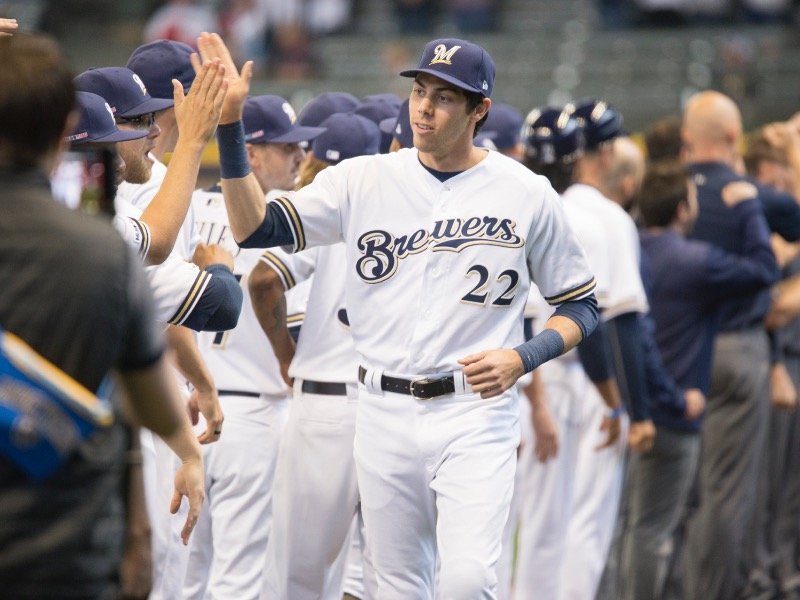Trades are a common occurrence across the sports industry. Even deals where one side wins the trade convincingly are relatively commonplace. But moves where one organization so thoroughly cleans the clock of its trade partner that the losing side should be fearful of ever picking up the phone again are not only exceedingly rare in the era of the modern front office, but also change the course of history, elevating one team to new heights while sending the other franchise spiraling into the depths of roster hell.
One prime example of such swindling came in October 2012, when the Houston Rockets swiped James Harden from the Oklahoma City Thunder for little more than a couple of middling first-rounders and a rack of balls. Not only did they weaken a budding Western Conference rival (though by trading for Harden, it may have indirectly pushed Kevin Durant to Golden State, creating the ultimate behemoth) the Rockets managed to jumpstart their own franchise by grabbing a fledgling star.
No one – not even Houston – expected Harden to develop into one of the most dynamic guards the league has ever seen, but by taking a chance on young talent, the Rockets launched themselves in the NBA’s upper crust.
Well, don’t look now, but the Milwaukee Brewers may have just done the exact same thing to the Miami Marlins.
In the offseason following the 2017 campaign, the Marlins were looking to dump their top talent in one of their seemingly quinquennial sell-offs. Weeks after Miami shipped off Giancarlo Stanton and Marcell Ozuna, the Brewers swooped in to complete the outfield sweep with Christian Yelich. Milwaukee sent prospects Lewis Brinson, Monte Harrison, Isan Diaz and Jordan Yamomoto back to the Fish in return for the then-26-year-old.
Like when the Rockets acquired Harden, who was then just a promising three-year combo guard coming off the bench, trading for Yelich before he had cemented his skill set was a no-brainer for Milwaukee general manager David Stearns. Yelich is one of just 101 players in the history of baseball to post at least 18 wins above replacement in his first five big league seasons before the age of 26.
Of the 100 other players to accomplish the feat, 48 are in the Hall of Fame or currently on the ballot, 19 are still active with HOF resumes that vary from stone-cold lock to simply ballot-worthy, a couple who would be in if not for PED connections and one – Derek Jeter, the man who ironically made the Yelich deal – who will move into Cooperstown next summer with near 100 percent approval rating.
Players who post 18 WAR at such a young age essentially have something close to a 60/40 shot at landing in the Hall of Fame. Not only was Yelich a part of that group, he was also working on one of the cheapest extensions in the sport. Jeter should have pushed the Brewers to fork over their lifeblood in assets. Instead, Milwaukee simply gave up four talented yet flawed minor leaguers.
Of course, Yelich has now turned into one of the five best players in baseball, something that was unexpected but not impossible when you see his first five-year numbers sandwiched between sluggers like Andre Dawson and Miguel Cabrera.
Since joining the Brewers, here are Yelich ranks across eight major offensive categories: second in home runs (48), second in runs (141), second in hits (217), second in RBIs (141), third in batting average (.332), third in on-base percentage (.410), second in slugging percentage (.631) and second in OPS (1.041). After winning the 2018 NL MVP with a second-half tear so scorching it would make prime Barry Bonds blush, he has picked up right where he left off, blasting 13 home runs in Milwaukee’s first 23 games in 2019. He has been the hottest hitter on the planet since last July, propelling the Brewers into annual contention as the Marlins’ struggle to field a competitive roster on a nightly basis.
On the other side of the trade, Brinson, the true foundation of the deal, has been the second-worst offensive regular in the game since joining the Marlins (57 OPS+). The three other prospects in the haul – Harrison (3rd), Diaz (6th), and Yamamoto (17th) – all rank highly in Miami’s farm system, so this isn’t a done deal yet, but you would be hard-pressed to find any baseball executive who wouldn’t call the Yelich trade an unequivocal looting by the Brewers.
Hindsight is 20/20, but it’s not hard to find people who actually thought this was a bad deal for Milwaukee. But Milwaukee – like Houston before it – knew banking on premier, developing talent, and then supplementing that centerpiece with high-level veterans (a la Chris Paul and Lorenzo Cain) is the only way to build a sustainable organization.
The Thunder and Marlins are still paying the price for that miscalculation today, while the Rockets and Brewers will be contenders for the foreseeable future.
When Brian's not writing about sports, he is probably prattling on about Marquette hoops, digging through statistics, or re-binging his favorite television series. Any conversation that begins with a quote from "The Office" or "West Wing" is a surefire way to grab his attention.







